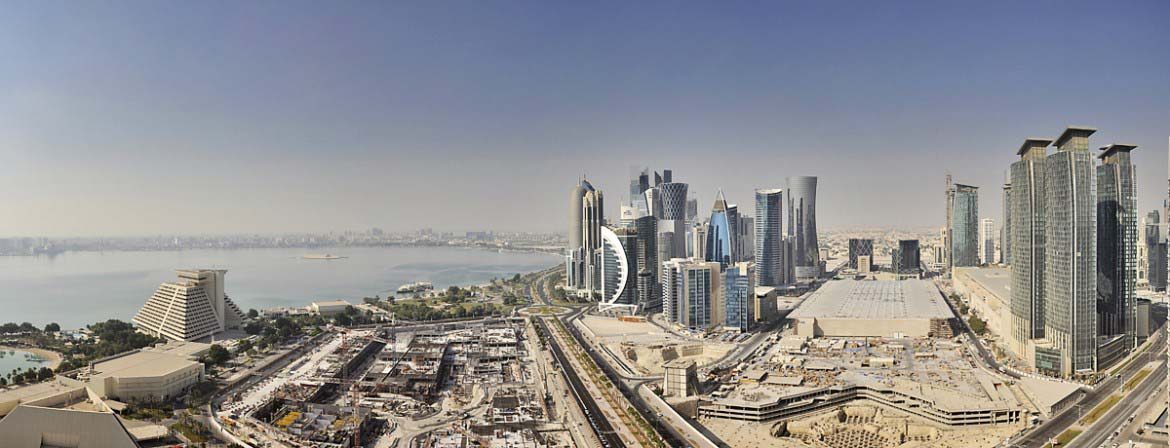
Though driving here can be stressful, and Doha sometimes feel like one enormous construction site, many Qatar residents tend to put a positive spin on life in here, according to a new report from Qatar University (QU).
QU’s Social and Economic Survey Research Institute (SESRI) polled more than 2,700 residents during March and April to gauge their opinions on life and economic prospects in the country for the Qatar Quarterly Survey.
Only responses to three questions from the survey were recently released by SESRI. According to those results, people here have high levels of consumer confidence, are optimistic about their personal financial situation and have an increasingly positive outlook on Qatar as a place to live, compared to a year ago.
This is despite month-on-month increases in the cost of living, and a 2013 survey conducted by SESRI that showed a third of blue-collars workers polled were “very dissatisfied” with their jobs.
The Qatar Quarterly Survey is an ongoing, large-scale research project that aims to provide unbiased opinion polling on questions of national interest to Qatar, t0 inform social, economic and employment policy.
A representative sample of the population is polled by telephone every three months to get their feedback on their personal financial situation, quality of life and the overall economy in Qatar.
Quality of life
To obtain their most recent results, researchers spoke to 894 Qatari nationals, 889 high-income expats and 934 low-income expats. The findings did not specify the salary ranges of those classified as “high” and “low” income.
The opinions were rated from 0 to 100, with 0 representing the most negative outlook and 100 the most positive.
Quizzed on their thoughts about Qatar as a place to live now, nationals rated the state at 92, up from 84 a year ago. High-income expats gave it a current rating of 78 (compared to 73 last year) while low-income expats rated it a 77 (compared to 69 last year).
And despite the number of infrastructure and building projects planned which will undoubtedly impact on traffic and getting around, people seem to think that life in Qatar will continue to improve. Asked about their opinions for the year ahead, Qataris rated it at 95, high-income expats at 83 and low-income expats gave it a rating of 84.
Consumer confidence
Residents were also asked about their own personal financial situations and for their confidence in the overall economy.
Perhaps unsurprisingly, Qatari nationals had the highest consumer confidence – 90.8, followed by high-income expats (85.9), and then low-income expats (87.3).
A higher consumer confidence index is associated with more personal spending and economic expansion.
This could be partly explained by a general satisfaction with their current financial security, which each sector rated positively – Qataris at 86.8, high-income expats at 77.3 and low-income expats at 76.8.
What does the future hold?
When asked to score their consumer expectations, low-income expats appear to be the most hopeful. They recorded the largest point increase, rating it at 90.8 – up 14 points on their current view of the economy.
Qataris’ consumer expectations were at 92.1 and high-income expats at 88.7.
In a statement, SESRI Director and QU’s Associate Vice-President for Research Dr. Darwish Alemadi said:
“Our survey results reveal high consumer confidence levels among Qatari residents, who remain optimistic about the economy. Findings from the QQS serve as important markers for business owners and policymakers who are looking for indicators on consumer behavior.”
The optimism recorded in the survey results comes despite a number of reports that show Qatar is becoming an increasingly expensive place to live.
Earlier this year, Dubai-based company the Cost of Living Reports (CLR) rated Qatar as the most pricey nation to live in the Gulf, based on variety of living expenses, including housing and car rental rates, gym membership fees, doctor visits, health insurance, school fees and the price of food and utilities.
And figures released earlier this month by the Ministry of Development and Planning showed that Qatar’s consumer price index (CPI) had risen for the fourth consecutive month. Year-on-year, rents in Qatar have risen by 6.3 percent, and the cost of furnishings by 5.1 percent.
Thoughts?